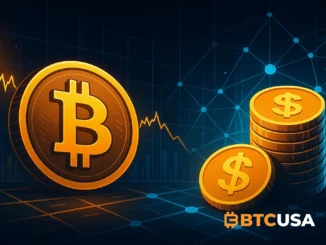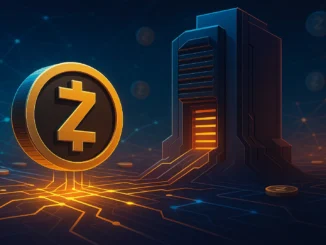Ripple: Fungible Cryptos in Secondary Sales Are Not Securities
In a major drop in its long-standing legal fight against the U.S. Securities and Exchange Commission (SEC), Ripple Labs argued that fungible cryptos such as XRP are not securities when sold in secondary markets.
The argument was made in a May 27 letter, where Ripple argued that current law does not support recognizing fungible crypto assets as securities under those facts. Such an argument could pose substantial implications for crypto markets and regulation conventions.
Legal Scholarship Used to Support Claim
Ripple’s position is based heavily on the legal writing of Lewis Cohen, a well-known attorney and crypto law thinker. Cohen’s 2022 publication, The Ineluctable Modality of Securities Law, determined that “there is no current basis in the law” upon which most fungible cryptocurrencies should be considered securities in secondaries.
He argued that secondary market sales many times do not involve investment contracts— a crucial requirement for something to be considered a security under U.S. law. Cohen’s argument centered on the aspect that such trade does not have a legal relationship between the holder of the asset and a central party, which is typically required for securities classification.
Commissioner Hester Peirce Calls for Reform
Ripple also borrowed from SEC Commissioner Hester Peirce’s May 19 speech, when she presented a “new paradigm” for crypto regulation. Peirce blasted the agency’s previous enforcement-oriented approach and called for a framework of strong, sound regulatory principles.
Most of the crypto assets that currently exist out in the market are not securities,” said Peirce, acknowledging economic realities should guide categorization. She further posited that although investment contracts might be comprised within crypto assets, the assets in and of themselves are not securities.
Ripple’s Legal Position Gains Ground
Ripple’s letter comes amid positive momentum in its long-running legal battle with the SEC. The conflict began in December 2020 when the SEC alleged that Ripple and its executives had conducted unregistered securities offerings via XRP sales.
Nevertheless, in a 2023 court ruling, it was held that XRP itself is not a security and that only direct institutional sales of Ripple would qualify as investment contracts. The SEC then dropped the appeal, a relaxation of its enforcement stance—more specifically under the new Trump administration, which has been crypto-benign in its approach.
The resolution of this debate can reshape regulation and trading of fungible tokens in U.S. markets. For Ripple, it’s another milestone toward clearing the legal status of XRP—and possibly establishing new precedent for the rest of the crypto space.


